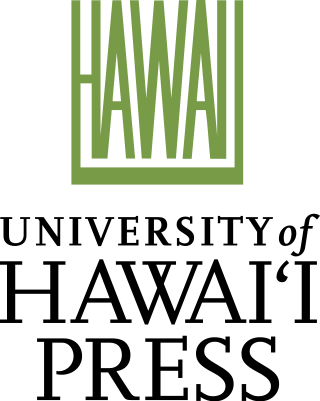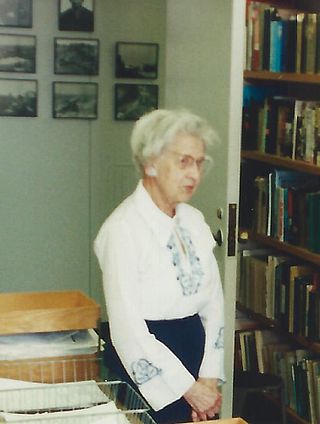
The Peter A. Allard School of Law is the law school of the University of British Columbia. The faculty offers the Juris Doctor (J.D.) degree. The faculty features courses on business law, tax law, environmental and natural resource law, indigenous law, Pacific Rim issues, and feminist legal theory.
The Institute of Pacific Relations (IPR) was an international NGO established in 1925 to provide a forum for discussion of problems and relations between nations of the Pacific Rim. The International Secretariat, the center of most IPR activity over the years, consisted of professional staff members who recommended policy to the Pacific Council and administered the international program. The various national councils were responsible for national, regional and local programming. Most participants were members of the business and academic communities in their respective countries. Funding came largely from businesses and philanthropies, especially the Rockefeller Foundation. IPR international headquarters were in Honolulu until the early 1930s when they were moved to New York and the American Council emerged as the dominant national council.
The International Strategic Research Organization is an independent think-tank established in 2004. It pursues interdisciplinary studies on national and international political, economic and security issues.
The University of British Columbia Library is the library system of the University of British Columbia (UBC). The library is one of the 124 members of the Association of Research Libraries (ARL). In 2017, UBC Library ranked 29th among members of the ARL for the number of volumes in library, making it the third largest Canadian academic library after the University of Toronto and the University of Alberta. However, UBC Library ranked 23rd for the titles held and second in Canada, and had a materials expenditures of $13.8 million, placing it 44th.
Canadian Literature is a quarterly peer-reviewed journal of criticism and review, founded in 1959 and owned by the University of British Columbia. The journal publishes articles of criticism and reviews about Canadian literature in English and French by Canadian and international scholars. It also publishes around 24 original poems a year and occasional interviews with writers. Each issue contains an extensive book reviews section. Rather than focusing on a single theoretical approach, Canadian Literature contains articles on all subjects relating to writers and writing in Canada. Each issue contains content from a range of contributors, and the journal has been described as "critically eclectic".

The University of British Columbia Press is a university press that is part of the University of British Columbia. It was established in 1971. The press is based in Vancouver, British Columbia, Canada, and has editorial offices in Kelowna, British Columbia, and Toronto, Ontario. UBC Press is primarily a social sciences publisher. It publishes books of original scholarship that draws on and reflects current research. Each year UBC Press publishes seventy new titles in a number of fields, including Aboriginal studies, Asian studies, Canadian history, environmental studies, gender and women's studies, health and food studies, geography, law, media and communications, military and security studies, planning and urban studies, and political science.

The University of Hawaiʻi Press is a university press that is part of the University of Hawaiʻi.
Edward Clark Carter worked with the International Y.M.C.A. in India and in France, during World War I, from 1902 to 1918, but was best known for his work with the Institute of Pacific Relations (IPR), of which he was secretary from 1926 to 1933, secretary general from 1933 to 1946 and executive vice-chairman from 1946 to 1948.

Mark Turin is a British anthropologist, linguist and occasional radio broadcaster who specializes in the Himalayas and the Pacific Northwest. From 2014–2018, he served as Chair of the First Nations and Endangered Languages Program and Acting Co-Director of the Institute for Critical Indigenous Studies at the University of British Columbia in Vancouver. He is an Associate Professor at the University of British Columbia, cross-appointed between the Department of Anthropology and the Institute for Critical Indigenous Studies. He currently serves as the Interim Editor of the journal Pacific Affairs.
William Wesley Pue was a Canadian lawyer, academic, and the Nemetz Professor of Legal History at the Peter A. Allard School of Law at the University of British Columbia, Vancouver, British Columbia. He was also a past President of the Canadian Law and Society Association.
William Lancelot Holland worked with the Institute of Pacific Relations from 1928 until 1960 as Research Secretary; American IPR Executive Secretary and editor of its periodical, Far Eastern Survey; IPR Secretary-General and editor of its journal, Pacific Affairs. He taught at University of British Columbia from 1961 to 1970.
Peter Dauvergne is an author and environmentalist. He is Professor of International Relations at the University of British Columbia.
John Bell Condliffe was a New Zealand economist, university professor and economic consultant. Lauded for the decisive role he played in international NGOs in the interwar period, he was one of New Zealand's best-known international economists.
William Wirt Lockwood (1906–1978) was an American academic who was Research Secretary (1935–1940) and Executive Secretary (1941–1943) at the Institute of Pacific Relations. In 1954, he published The Economic Development of Japan, which detailed the transformation of Japan from an agrarian society to one of the world's leading industrial powers.
The Vancouver School of Economics is a school of the University of British Columbia located in Vancouver, BC, Canada. The school ranks as one of the top 25 in the world and top in Canada. The school exhibits research activity and offers undergraduate and graduate degrees.

Annette May Baker Fox was an American international relations scholar, who spent much of her career at Columbia University's Institute of War and Peace Studies. She was a pioneer in the academic study of small powers and middle powers and the books and articles she wrote on that subject are highly regarded in the field. She was director of the institute's Canadian Studies Program from 1977 to 1984.
Richard Victor Alvarus Mattessich was an Austrian-Canadian business economist and Emeritus Professor of Accounting at the University of British Columbia, known for introducing the concept of electronic spreadsheets into the field of business accounting in 1961, as well as pioneering analytical and philosophical methods in accounting.
Thomas Arthur Bisson, who wrote as T. A. Bisson was an American political writer, journalist, and government official who specialized in East Asian politics and economics.
B. Brett Finlay, is a Canadian microbiologist well known for his contributions to understanding how microbes cause disease in people and developing new tools for fighting infections, as well as the role the microbiota plays in human health and disease. Science.ca describes him as one of the world's foremost experts on the molecular understanding of the ways bacteria infect their hosts. He also led the SARS Accelerated Vaccine Initiative (SAVI) and developed vaccines to SARS and a bovine vaccine to E. coli O157:H7. His current research interests focus on pathogenic E. coli and Salmonella pathogenicity, and the role of the microbiota in infections, asthma, and malnutrition. He is currently the UBC Peter Wall Distinguished Professor and a Professor in the Michael Smith Laboratories, Microbiology and Immunology, and Biochemistry and Molecular Biology, and Co-director and Senior Fellow for the CIFAR Humans and Microbes program. He is also co-author of the book Let Them Eat Dirt: Saving Your Child from an Oversanitized World and The Whole-Body Microbiome: How to Harness Microbes - Inside and Out - For Lifelong Health. Finlay is the author of over 500 publications in peer-reviewed journals and served as editor of several professional publications for many years.

Curtis A. Suttle is a Canadian microbiologist and oceanographer who is a faculty member at the University of British Columbia. Suttle is a Distinguished University Professor who holds appointments in Earth & Ocean Sciences, Botany, Microbiology & Immunology and the Institute for the Oceans and Fisheries and a Fellow of the Royal Society of Canada. On 29 December, 2021 he was named to the Order of Canada. His research is focused on the ecology of viruses in marine systems as well as other natural environments.






